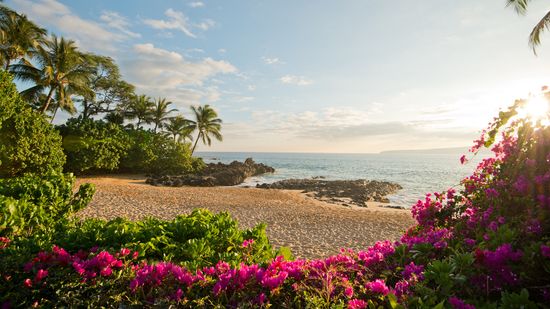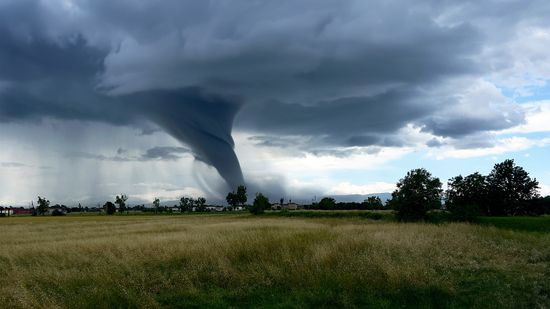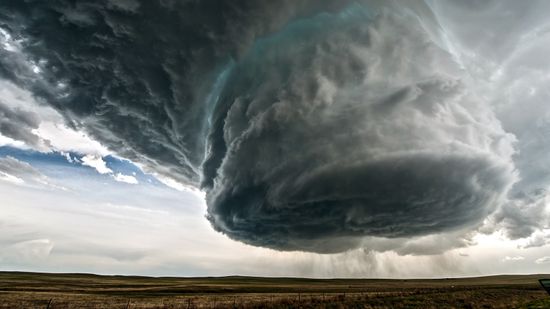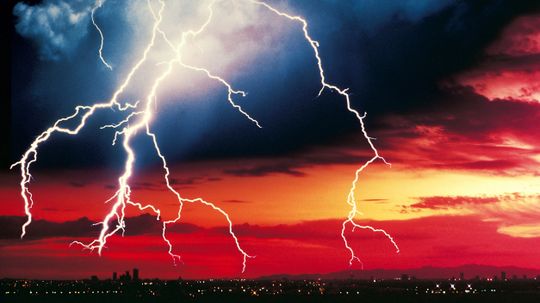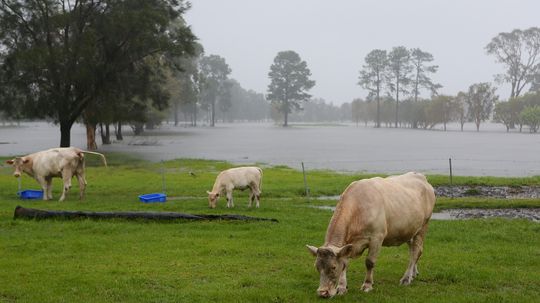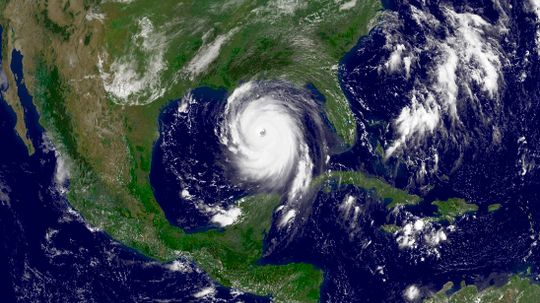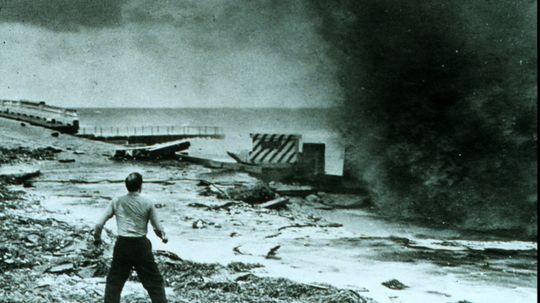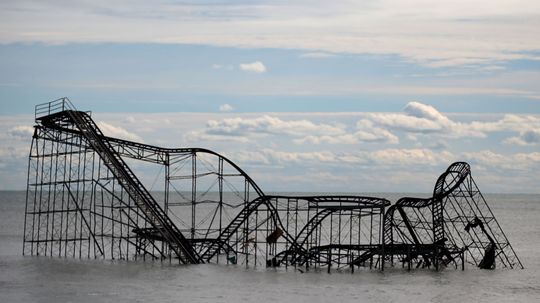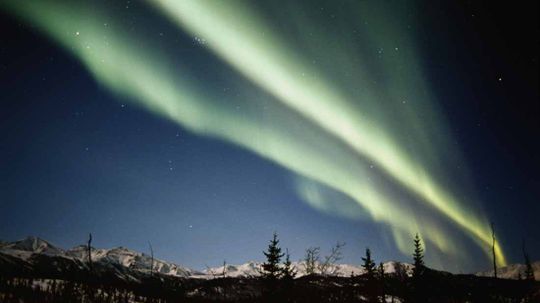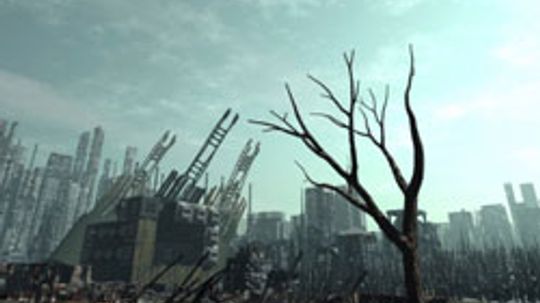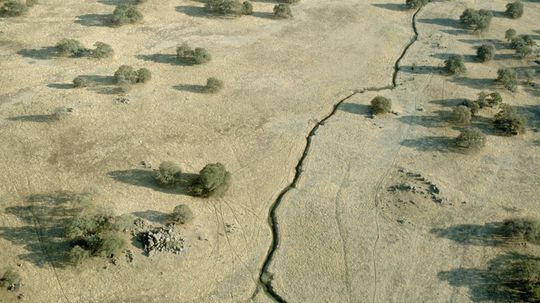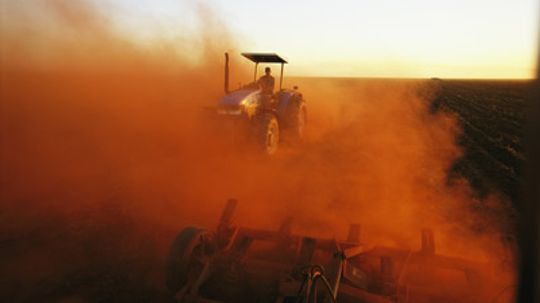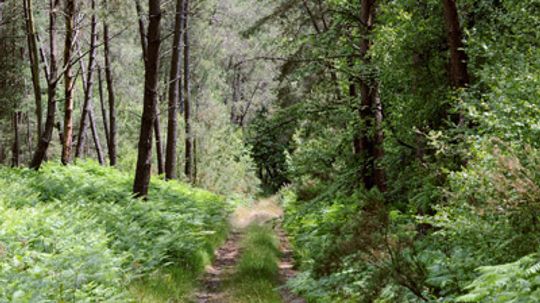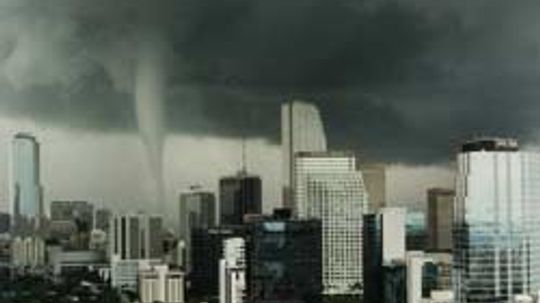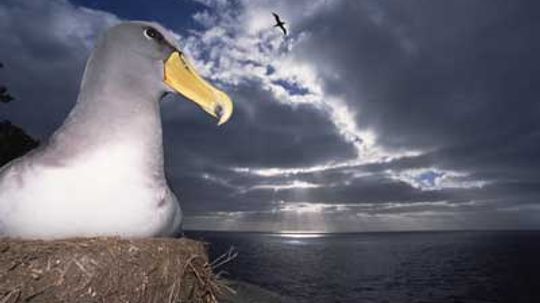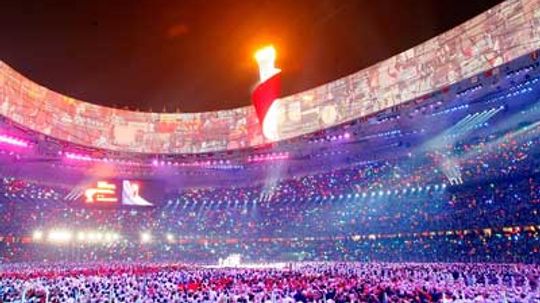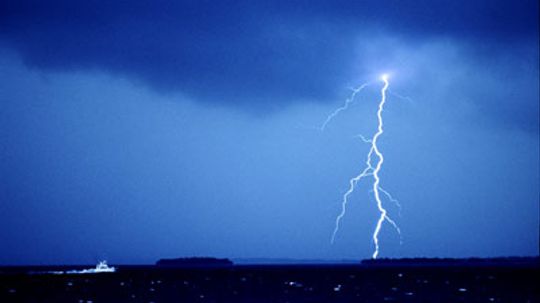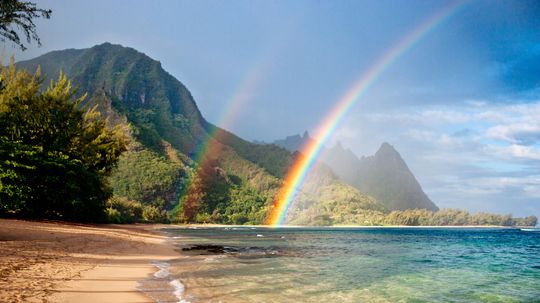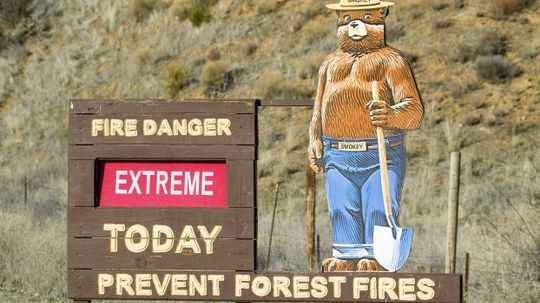Forces of Nature
We see the destruction that the Earth can unleash in the news on a regular basis. Here you can learn about hurricanes, tornadoes, earthquakes and other forces of nature.
Learn More / Page 3
There's a thunderstorm brewing with some serious lightning. Fortunately you're safe in your car because of its rubber wheels. Or are you? And let's not get started on your rubber-soled sneakers!
By Chris Opfer
Next time the cat starts sneezing, should you look for your umbrella or check her out for allergies? There are many superstitions out there about animals and weather prediction. Which ones hold water, and which ones are for the birds?
By Alia Hoyt
There are certain steps you should take to protect yourself, your family and your home during a disaster. These are not those steps.
Advertisement
The most damaging hurricanes usually have female names. Is this a case of gender bias, or is some other force at work?
Nothing ruins a good hair day like humidity, especially if your hair is dry and overprocessed. What's the science behind the frizz?
A very strong storm doesn't automatically mean death or destruction. You can improve the odds of surviving intact with reinforcements to your home. Plus, scientists are improving their forecast methods. Let's look at high-tech and low-tech storm alerts.
What makes a nor'easter different from your run-of-the-mill winter storm? And which ones have done the most damage?
Advertisement
Auroras themselves aren't rare, but spotting one can be tricky: You need a clear, dark sky within one of the auroral zones. What are 10 spots that up the odds a bit?
By Julia Layton
You've heard the weather forecast on the radio: A storm is coming. That means time to hit the grocery store for bread and milk! But why those items, when they're likely to spoil with a power cut?
It seems like every few years someone comes out with a new doomsday prophecy. From aliens and asteroids to floods and earthquakes, how do people think the world will end?
As the clock ticks closer to Dec. 21, 2012, discussion regarding what exactly will happen to the world and human civilization continues to heat up. What are some of the wackier conspiracy theories about the year 2012?
By Jane McGrath
Advertisement
These earthquake pictures show building damage, road buckling and fault lines exposed from earthquakes. Click through our gallery of earthquake pictures.
We know where major fault lines crisscross the Earth and where about 80 percent of the world's earthquakes occur; it's the "when" that seismologists have valiantly struggled with. Why?
By Robert Lamb
When climate variations mix with unsustainable agriculture and urbanization, vast swaths of once-fertile lands transform into deserts. Is the U.S. in danger of becoming a dried-up wasteland?
We all know it's a little cooler under a shady tree. But do trees have an effect on the five-day forecast, or even the global climate?
Advertisement
Thunderstorms are impressive and destructive elements of nature. This collection of images highlights some of the most spectacular features of storms.
By Rick Mayda
Can Fido predict an incoming tornado? If animals can predict the weather, do we stop trusting the weatherman and start visiting the zoo to get tomorrow's forecast?
As a dominant world power, there's not much that China doesn't affect or control outright these days, including the weather. How did the superpower produce flawless skies for the biggest party of the year?
I read 'How Floods Work,' but I still have a question: Why are there so many more floods now? It seems like there are floods all the time, and it didn't used to be that way. Is it raining more?
Advertisement
You may have noticed signs on the highway that warn "Bridge Ices Before Road." What causes this to happen?
Snow is nothing more than frozen water, and water is clear, not white. But snow is bright white. How?
What is "wind chill"? Does it have any effect on inanimate objects?
You've heard the warnings about thunderstorms: Stay out of the tub, unplug your TV and don't call people from your land line. But can you really get struck by lightning while you're inside?
Advertisement
Rainbows are one of nature's most beautiful effects. Have you ever wondered how the colors end up in seemingly perfect bands? And, what about double rainbows -- how does that happen? Find out how rain and sun can align to put color in the sky.
By Tom Harris
The raging wildfires in southern California have claimed lives and destroyed hundreds of homes. Learn how wildfires start and spread, and find out what firefighters do to battle the blaze.
By Kevin Bonsor

